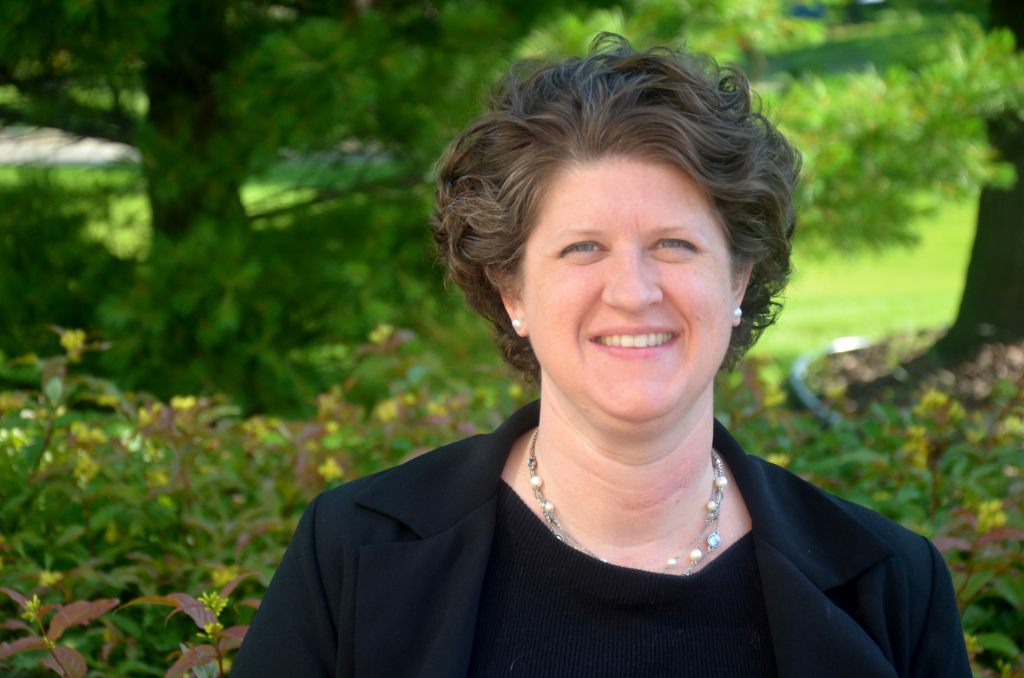Rural Educator Running for State Superintendent
Jill Underly, superintendent of the Pecatonica School District, wants to address educational inequities caused by poverty.
Pecatonica school superintendent Jill Underly announced on Thursday that she will run for State Superintendent of Public Instruction next spring, to succeed Carolyn Stanford Taylor who announced in January that she will not seek another term. Stanford Taylor was appointed by Gov. Tony Evers, who held the job himself for nine years before he was elected governor in 2018.
Underly has worked as an assistant director at the state Department of Public Instruction, an academic advisor at the University of Wisconsin-Madison and as a high school teacher. She became the superintendent of the rural Pecatonica school district in 2015.
“I’ve been thinking about it for a couple of years,” Underly says of her decision to run for state superintendent. Her experience working in a rural area gives her an advantage, she says, because “in rural schools we have to have our fingers in everything. You get to see every facet of school administration.”
“Every day I see all the great work that goes on in our public schools,” she adds.
Underly’s motto is “Every Child, Every Day.”
During the COVID-19 pandemic, the inequities among Wisconsin’s school children have become more visible, she says. Some of those inequities are shared by rural and urban school districts alike, including lack of access to reliable internet service, pockets of significant poverty, mental health issues and food insecurity — problems that have been exacerbated by the shutdown of school buildings.
After the pandemic, she says, there will be even greater gaps between kids who had an internet connection, not to mention parents who were able to stay home and help them with school work, and those who lost access to teachers and school meals and whose parents had to stay on the job as essential workers.
“We’re hearing every week about more kids and adults who need meals,” Underly says. “Social problems are just amplified.”
At the same time, “teaching, as a profession, has been elevated” during the pandemic, Underly says. People appreciate the work that teachers do, and the role of public schools. “It’s the social connection, and the fabric of communities,” she says.
She does not see Secretary of Education Betsy DeVos’ grant program for online homeschooling as a good longterm solution.
“Every child in Wisconsin deserves a well-funded public school, with kind, well-trained and enthusiastic teachers — and that’s something we can’t really transfer to an online setting,” she says.
Among the other issues Underly considers critical are Wisconsin’s teacher shortage, access to high-quality early education and mental health services for both students and staff.
“There’s a lot of trauma and uncertainty,” she says. “We need to look at the ways we can bring more resources into our schools to deal with that.”
She also says teachers need to have a more of a voice in decisions about running the schools.
Wisconsin should look to other countries and even other states that are able to retain good teachers, to learn how to stem the teacher exodus, Underly suggests.
“We don’t have enough people going into the profession to sustain our pubilc-school teaching profession,” she says.
For her part, Underly says, she left teaching when she went to graduate school and started her family. “It was just too much to do all at once,” she says. But she stayed involved with public schools for her entire career.
“I am a public school advocate,” she says. “I was a public school teacher, my kid goes to public school, to this day I’m communicating with my legislators regularly [on public school issues]. I’ve seen the great thing our graduates can do. That’s why I wanted to take this next step. I want to continue to fight for public schools.”
The election will be held a year from now, in April 2021.
Reprinted with permission of Wisconsin Examiner.






















